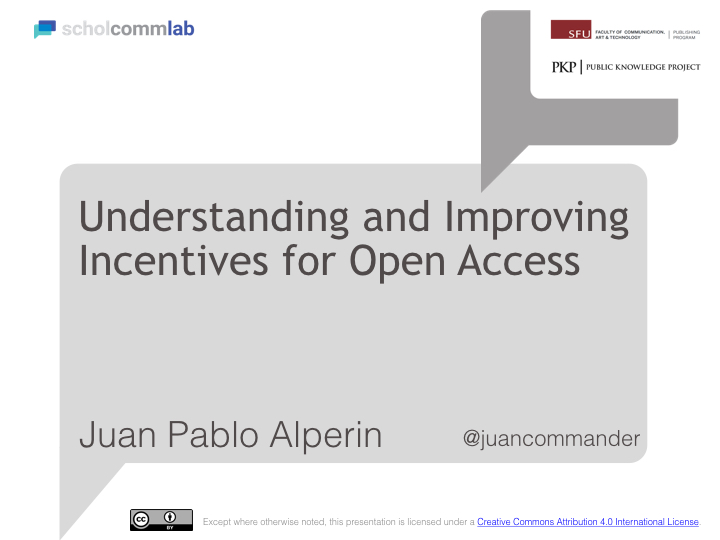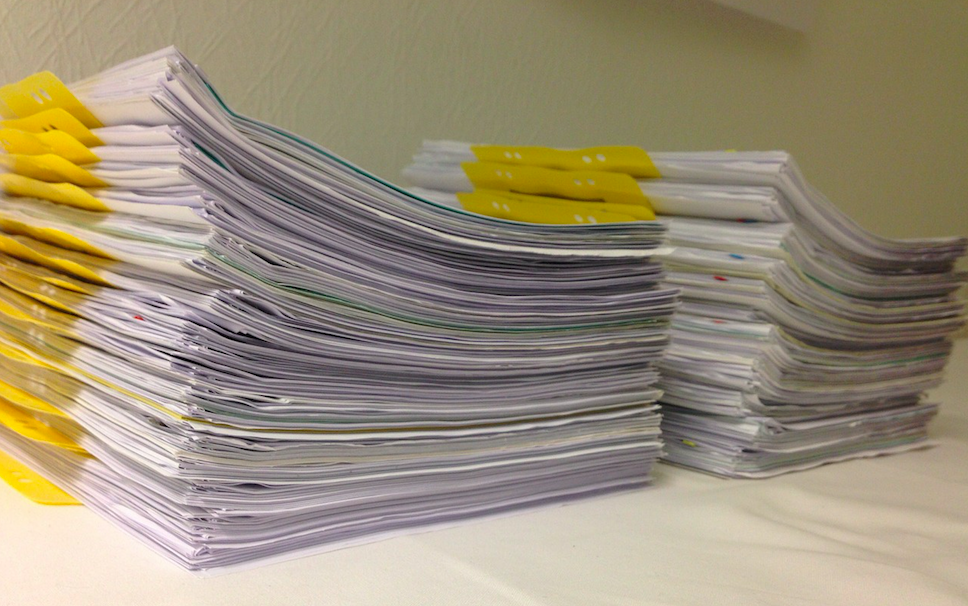
Keynote presented by Juan Pablo Alperin at the first United Nations Open Science Conference on November 19, 2019, organized by the UN Dag Hammarskjöld Library and the Scholarly Publishing and Academic Resources Coalition ( SPARC ). Good morning.

Keynote presented by Juan Pablo Alperin at the first United Nations Open Science Conference on November 19, 2019, organized by the UN Dag Hammarskjöld Library and the Scholarly Publishing and Academic Resources Coalition ( SPARC ). Good morning.

In this keynote presented at the Atla 2019, Juan Pablo Alperin discusses the role of incentives in opening access to scholarly research.

The review, promotion, and tenure (RPT) process is one of the cornerstones of academic life, influencing how and where faculty focus their attention, direct their research, and publish their work. In a recent study, the ScholCommLab analyzed this process from a new perspective—textual analysis of a representative sample of RPT guideline and policy documents—to understand the incentive structures that reinforce traditional

Support for the open access movement has grown in recent years, and today more than a quarter of scholarly literature is freely available. Yet, despite years of advocacy work and countless policies and mandates promoting openness, the majority of researchers are still not compelled to make their research outputs publicly available. Why is this the case? What barriers stand in the way of creating real change?